Antic philosophy
Created by Ondřej Michálek
#antic, #english, #philosophy

"The way up and the way down are one and the same."
"There is nothing permanent except change."
It is wise to listen to LOGOS
- LOGOS means word, ideal
- saint John used this word in the beginning of his evangelium
"To God everything is beautiful, good, and just; humans, however, think some things are unjust and others just."
"The death of fire is the birth of air, and the death of air is the birth of water. For it is death to souls to become water, and death to water to become earth. But water comes from earth; and from water, soul."
No man ever steps in the same river twice. For it’s not the same river and he’s not the same man.

Heraclitus worked with opposites
warm - cold
dry - wet
life - death
Heraclitus of Ephesus
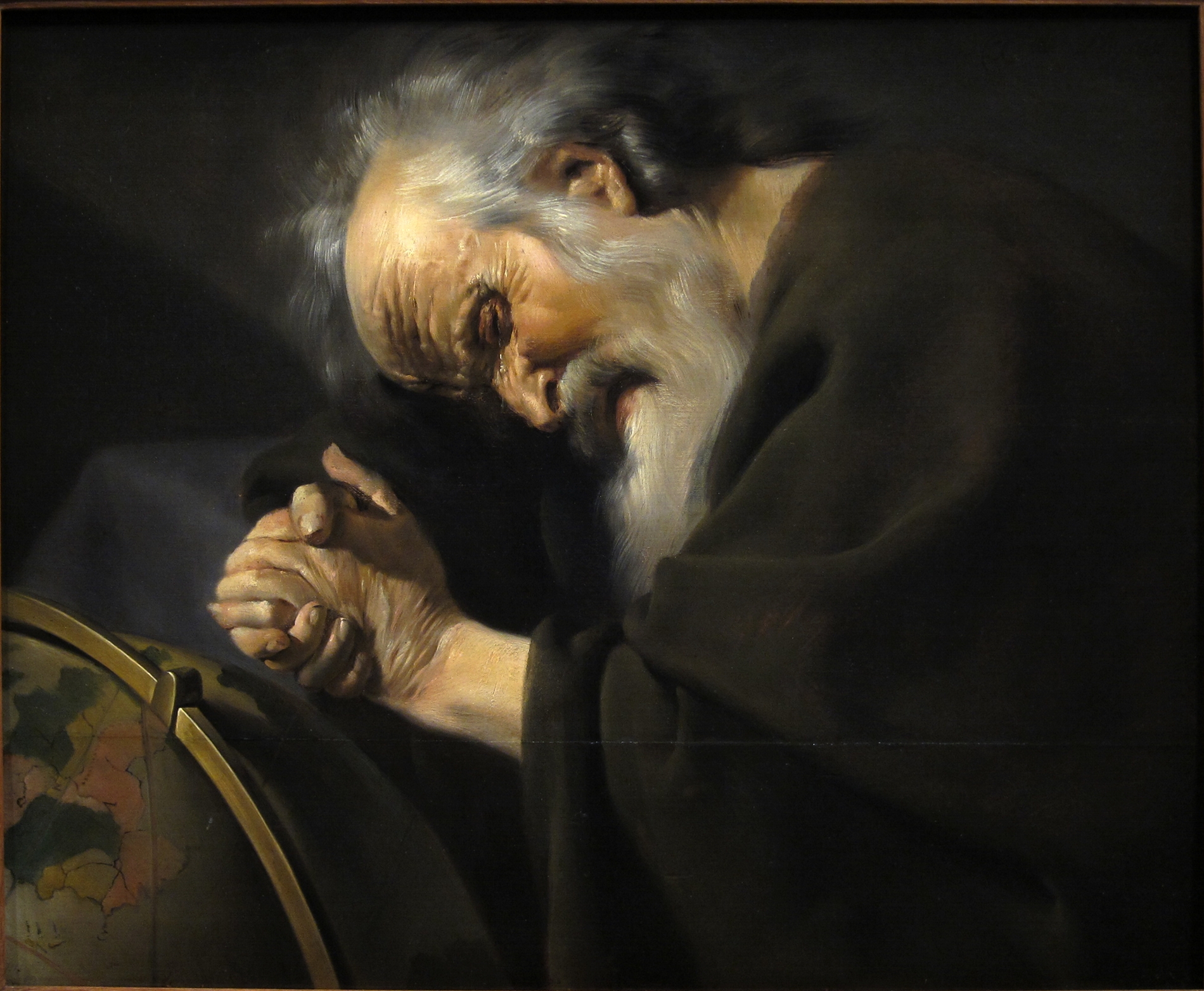
"Cold things become warm, and what is warm cools; what is wet dries, and the parched is moistened. And it is the same thing in us that is quick and dead, awake and asleep, young and old; the former are shifted and become the latter, and the latter in turn are shifted and become the former."
Dark philosopher
He was not easy to understand or easy to get along, sometimes called: The weeping philosopher
- 535 – c. 475 BC
- Greek: Ἡράκλειτος
- ARCHÉ is fire
- the weeping philosopher
- misanthrope
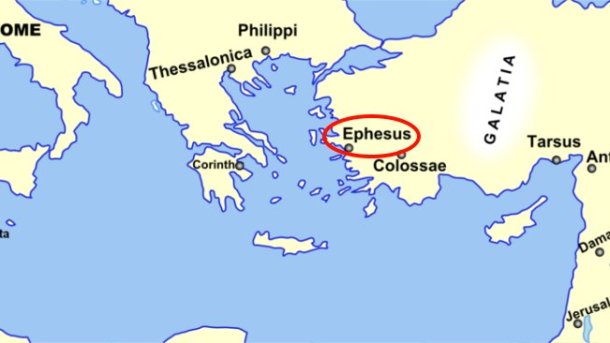
All things are made from fight - fire

"The battle is the father of all things"
Created community in Italy
- first philosophical comunity
- women were allowed to listen
- semi-religious movement
Believed in reincarnation of soul
Xenophanes
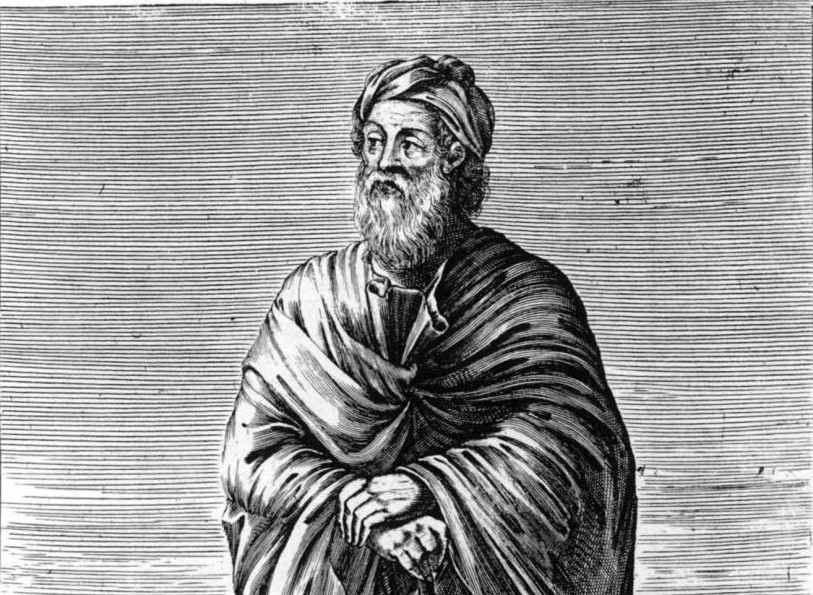
All things are numbers

Olive presses
There is a story that he wanted to persuade others that philosophy could be profitable.
One year the weather was exceptionally favourable and the olive trees were laden with olives. Thales has bought all the olive presses. He had foreseen that there would be a great olive crop that year, and with the little money he possessed, had given deposits for the use of all the olive presses in Miletus and the neighbouring island of Chios. Everyone, whether they liked it or not, had to hire their press from Thales, and he let them out at whatever rate he chose.
World is full of Gods
- Aristotle, De anima I, 5; 411a7
- even gods are made from water
"If cattle and horses, or lions, had hands, or were able to draw with their feet and produce the works which men do, horses would draw the forms of gods like horses, and cattle like cattle, and they would make the gods' bodies the same shape as their own."
Pythagoras
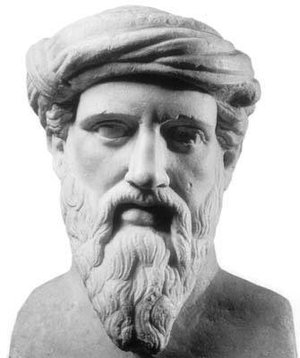
"The sould is ethernal"
Thales of Miletus
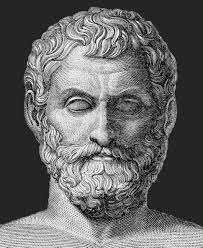
All things are from water

All is one

- 626/623 – c. 548/545 BC
- Greek: Θαλης ὁ Μιλήσιος
- ARCHÉ is water
- rich aristocrat
- first philosopher
Parmenides
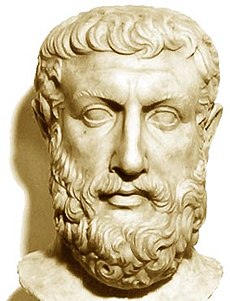
"The source from which existing things derive their existence is also that to which they return at their destruction because of necessity; for [he says] that they suffer punishment and give satisfaction to one another for injustice."
Anaximandros came with the first theory of equillibrium
when there is warmer, it is injustice to the cold and punishment would be colder weather, etc.
Paradoxes
"There are many worlds and many systems of Universes existing all at the same time, all of them perishable."
Everything is in everything

How could cow get more meat from eating grass? Because in grass is meat
- Everything is in everything, in grass is gold, bones, dust, wood etc.
- Anaxagoras called it homoeomeria
Infinite division
"There is always something smaller as well as something bigger, thus we can divide to infinity."
If there is everything in everything, could we distinguished meat itself from wood?
- No, we couldn't, there is always everything in everything
Divine wisdom
Parmenides wrote his philosophy in a poem, that depicts dream. In that dream he met a goddess, which taught him the right way - as in mythos
Cosmic mind
How can cosmos know, which element should be visible the most? There is something as cosmic mind - nous.
This mind gives an order, not some god on Olympus.
Zeno
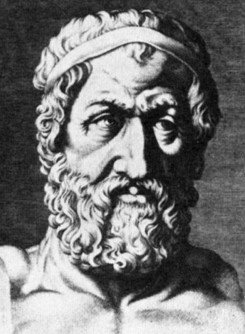
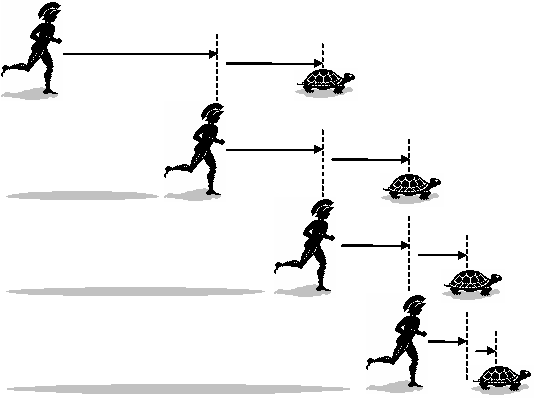
All things are from APIERON
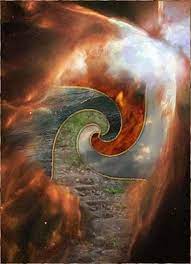
- APEIRON means boundless
- it is something from which every thing comes and also returns
- could be black hole, which returns elemnts by its own standarts
Eleatic philosophers
Anaximander
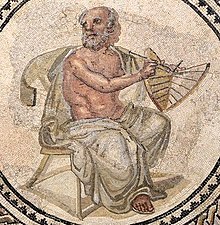
The first creatures originated from the moist element by evaporation. Man originated from some other kind of animal, such as fish, since man needs a long period of nurture and could not have survived if he had always been what he is now.
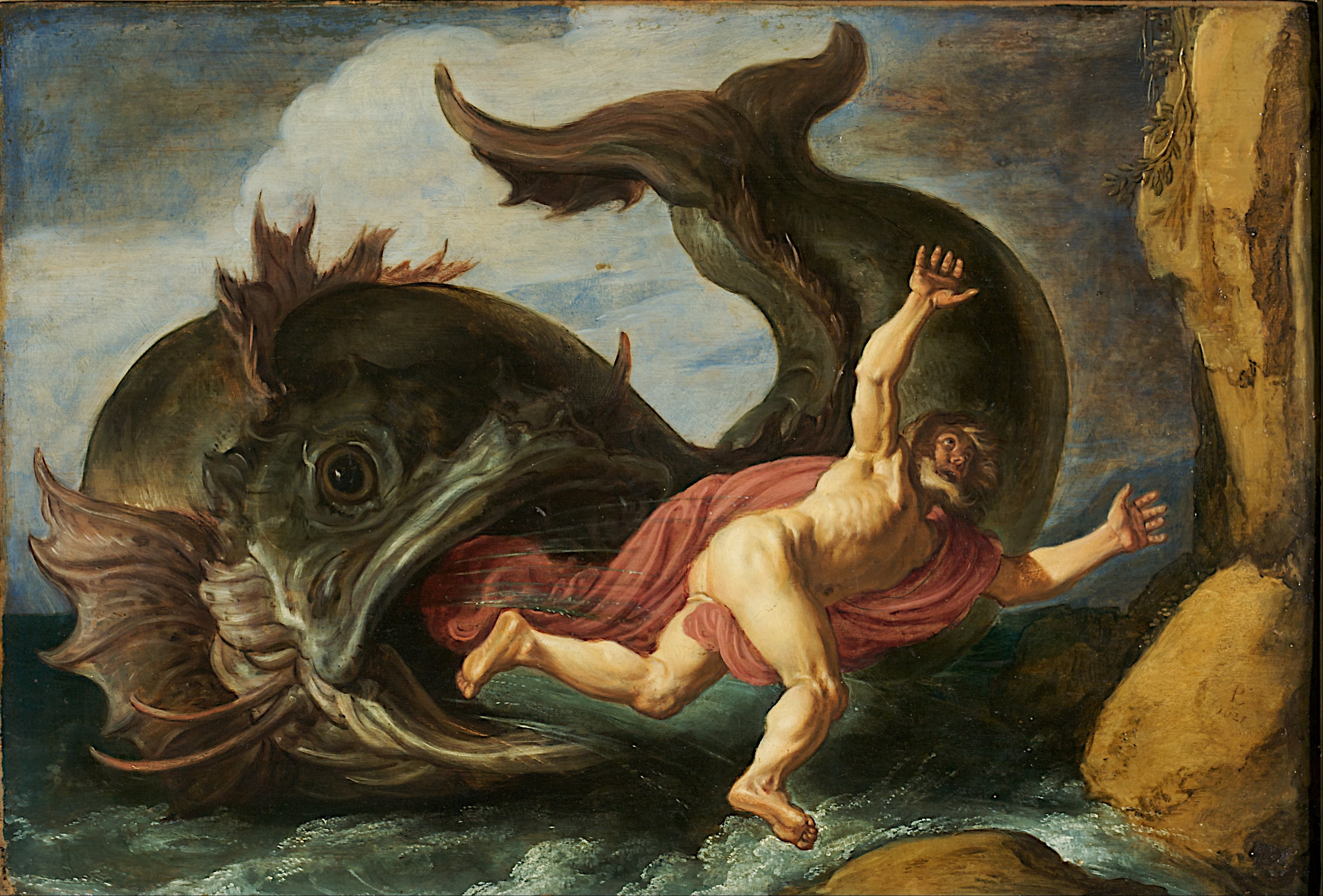
Anaximandr held first evolutionary theory
Anaxagoras
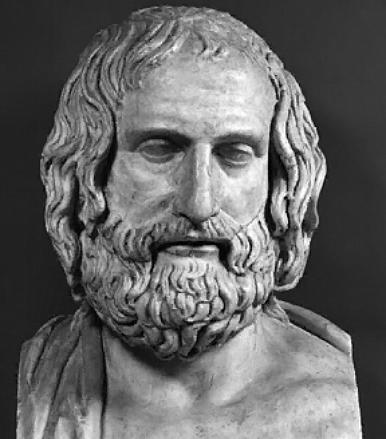
Stoics
- 610 – 546 BC
- Greek: Ἀναξίμανδρος
- everything comes from unbounded substance - APEIRON, and returns to it
- pupil of Thales
FIrst philosoher who came to Athen
Empedocles
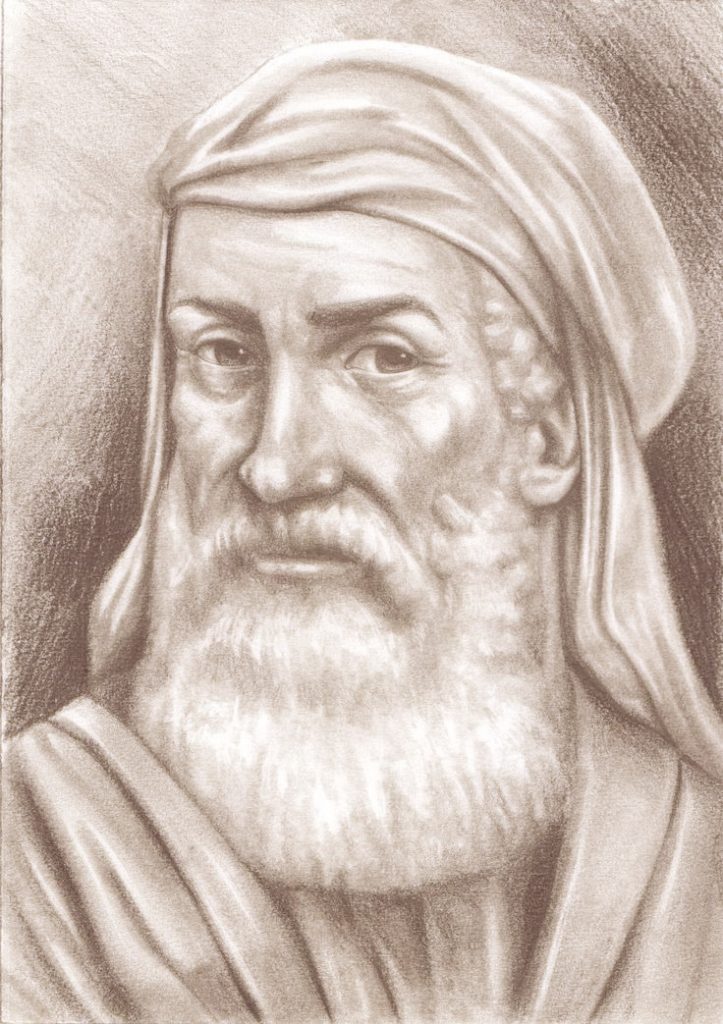
Italic philosophers
Helenistic philosophy
Search for ARCHÉ
- ARCHÉ (greek ἀρχή, latin principium) is the basic principle, origin, also rule
- to know ARCHÉ is to know the source, first law
- in traditional myth, arché were gods, sometimes the emptiness from which the gods were made
The Milesian School
- First philosophers were located in Asia minor
- Their main topic was the basic principle of the world - ARCHE
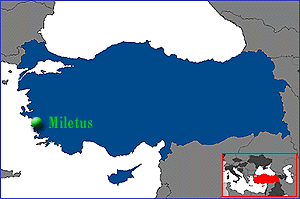
Ionian philosophy
Domain of Greeks and later Romans
Epicureans
From 6th century BC to 5th century AD
"Just as our soul, being air, constrains us, so breath and air envelops the whole cosmos."
Anaximenes
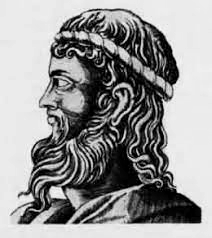
Map of antic philosophy
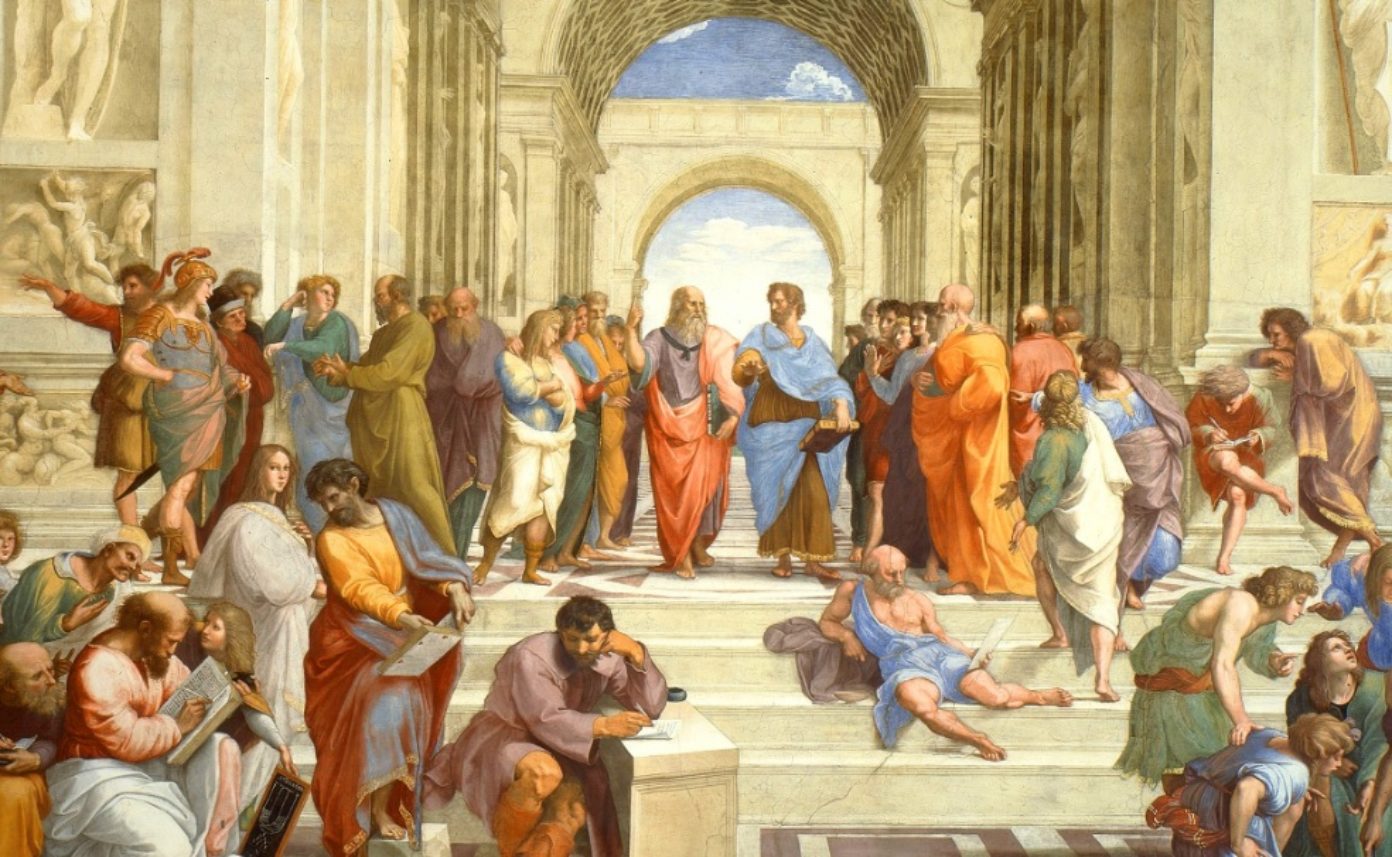
Diogenes of Sinope
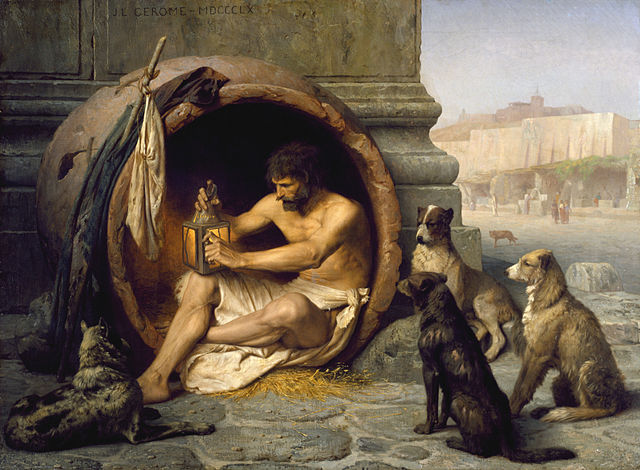
He says that the stars do not move under the earth as others have supposed, but around it, as a felt cap turns around our head. The sun is hidden not because it is under the earth but because it is covered by the higher parts of the earth and on account of the greater distance it comes to be from us. Because of their distance the stars do not give heat.
Athenian philosophy
Sceptics
- 585 – 528 BC
- Greek: Ἀναξιμένης ὁ Μιλήσιος;
- everything comes from air
- pupil of Anaximander
All things are from air

Aristotle
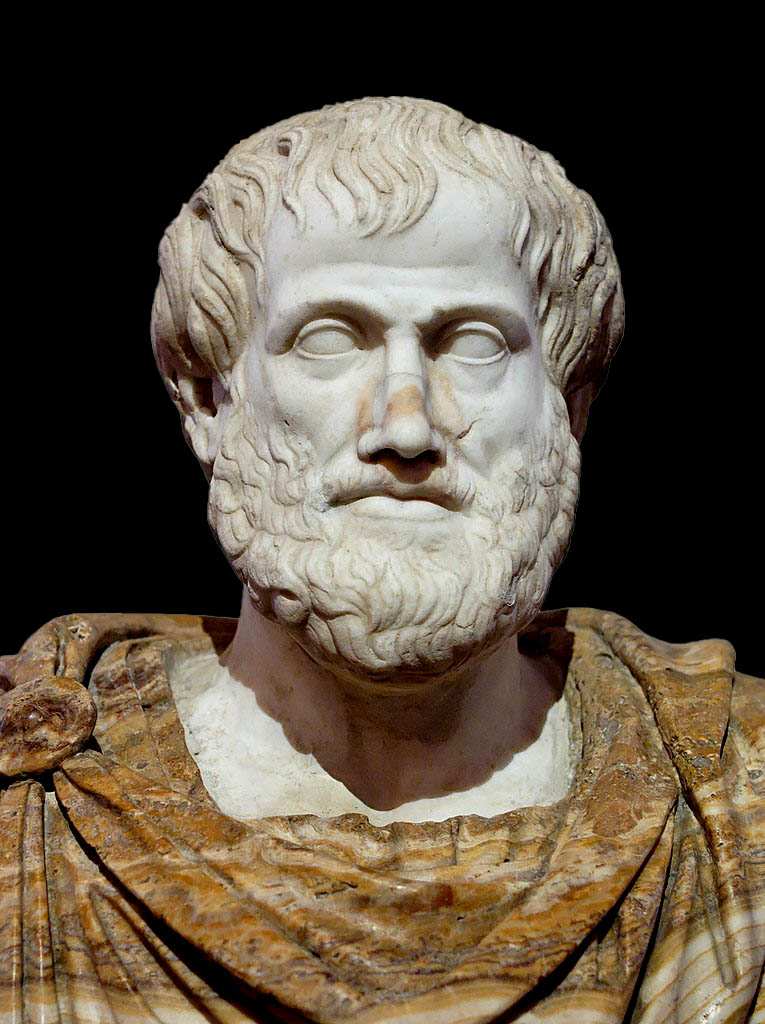
Plato
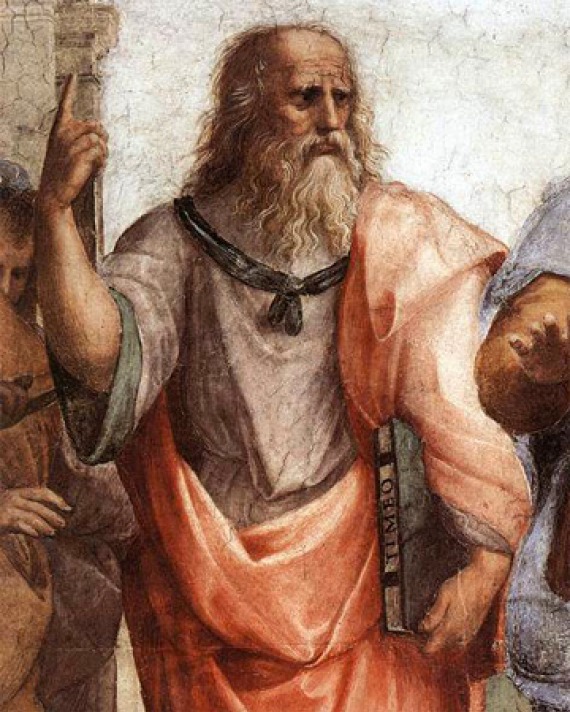
Socrates
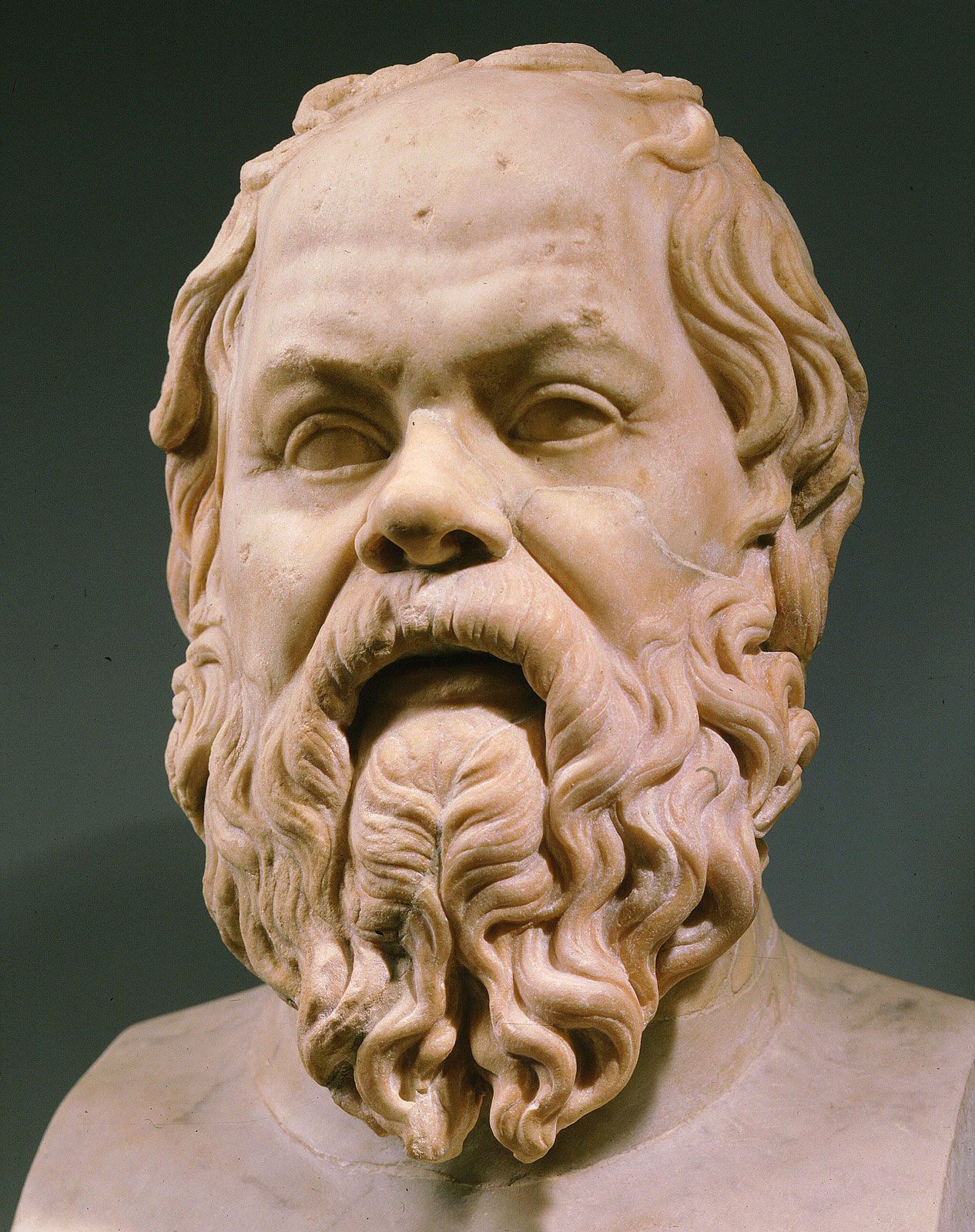
Refusing of mythical explanation
First philosophers did ask questions that were traditionally answered by stories
- How was cosmos created?
- Where do people come from?
- What is matter made of?
Myth about the cave
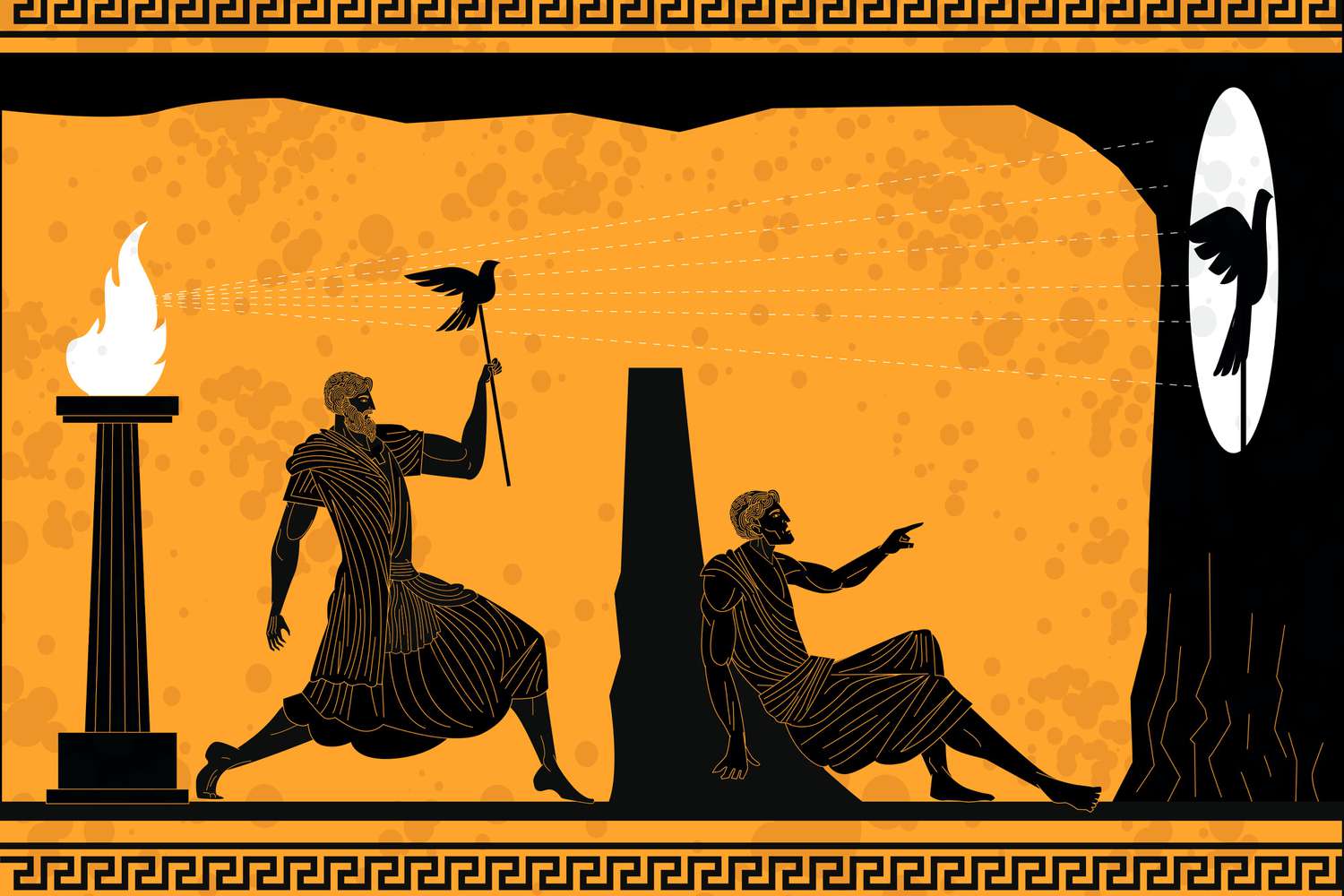
Plato interprets philosophy as the way from prison and lie (cave and pictures on the wall) to freedom and knowledge of truth (outside of cave and real knowledge of objects and light
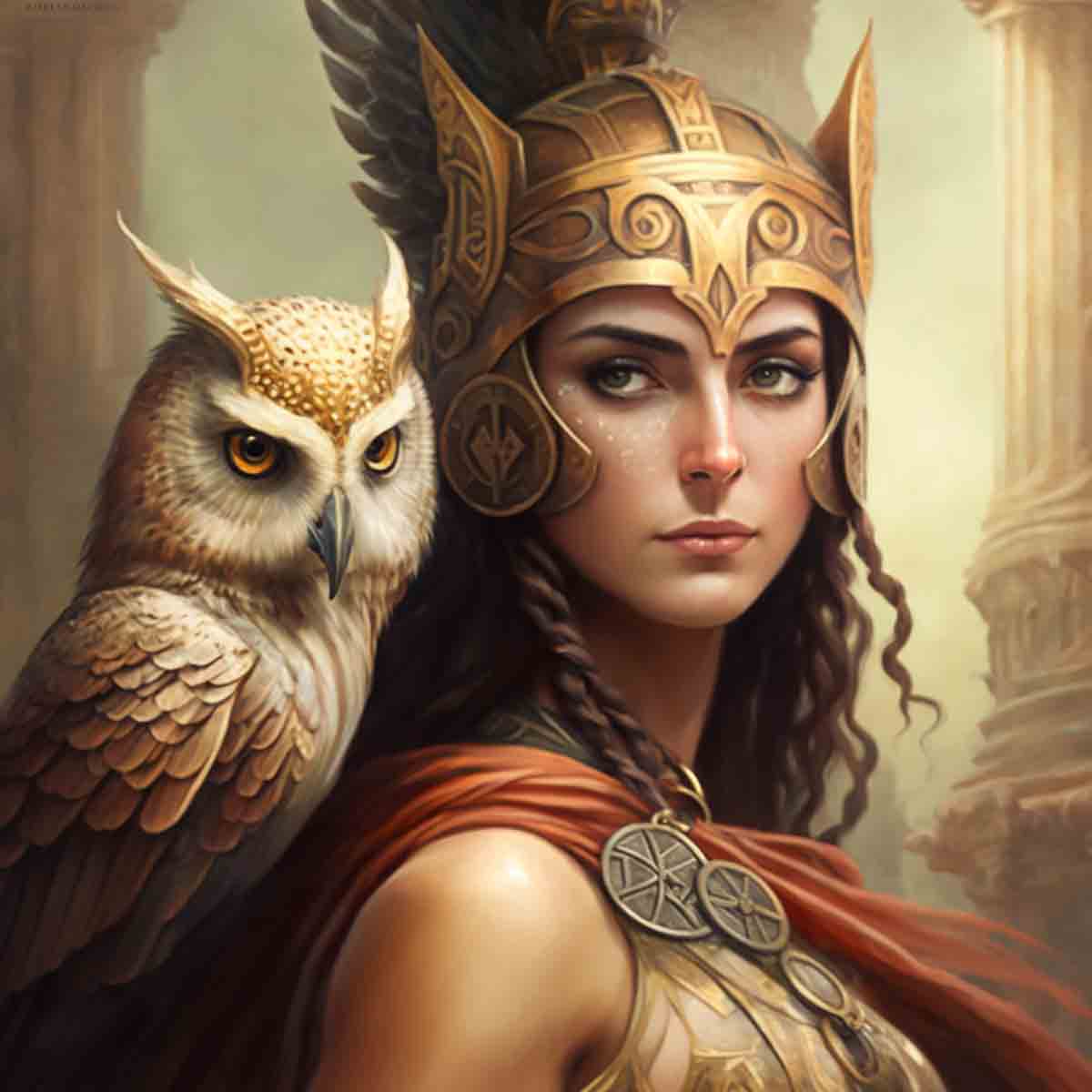
Mythos
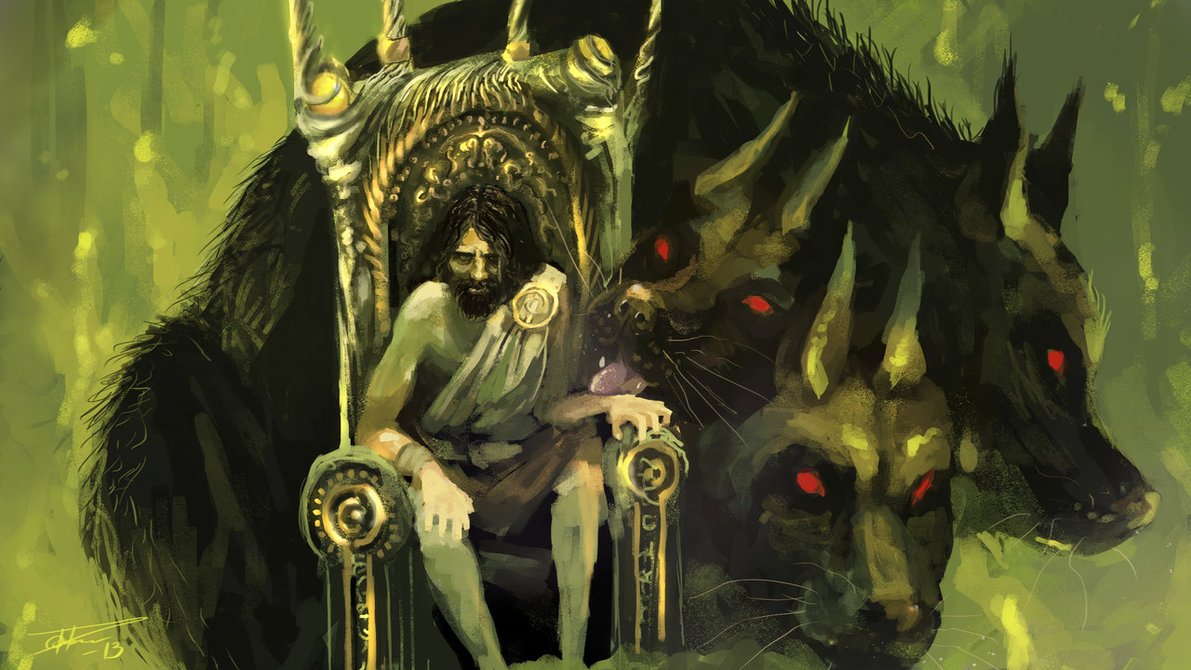
Creation myths
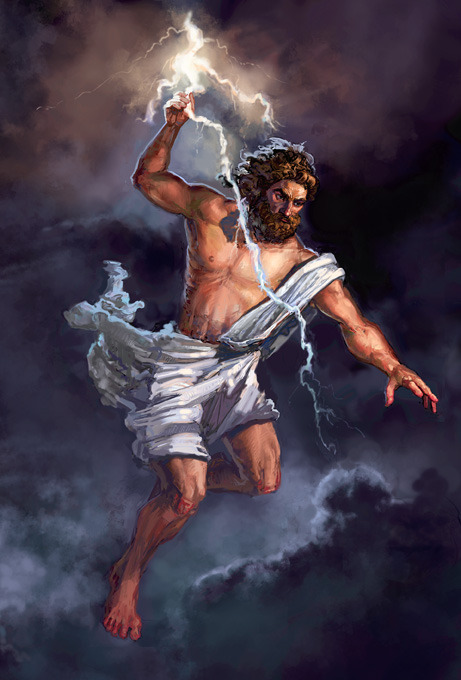
Hesiod
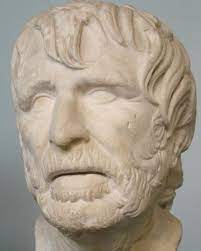
- between 750 and 650 BC
- Greek: Ἡσίοδος
- the first written poet in the Western tradition to regard himself as an individual persona with an active role to play in his subject
Theogony
The story of creation of Gods
First philosophical text
- deities are reasonably structured
Homer
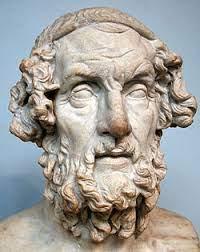
- born 8th century BCE
- Greek: Ὅμηρος
- one of the most influential authors in history
Works and Days
- poem of over 800 lines
- 5 ages of men
- advises how to live a bette
Author of uknown origin
We assume that Illias and Odyssey are from two different authors, because Odyssey is much more complex than Iliad
Timeline of Philosophers
Odyssey
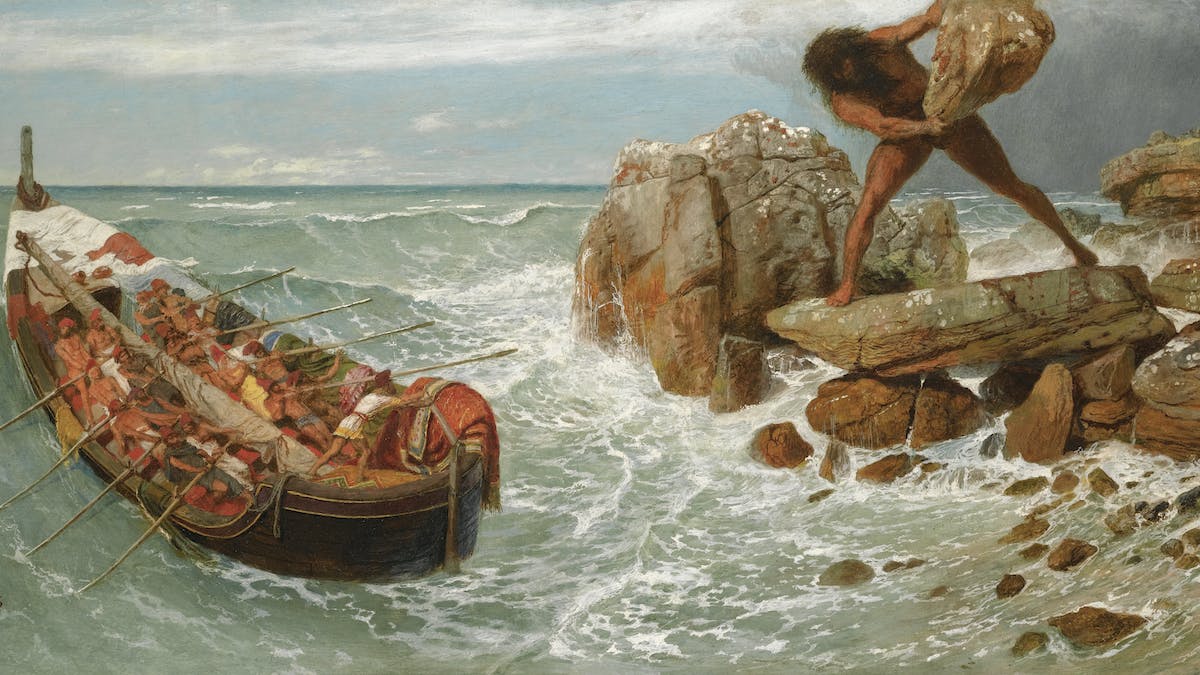
Iliad
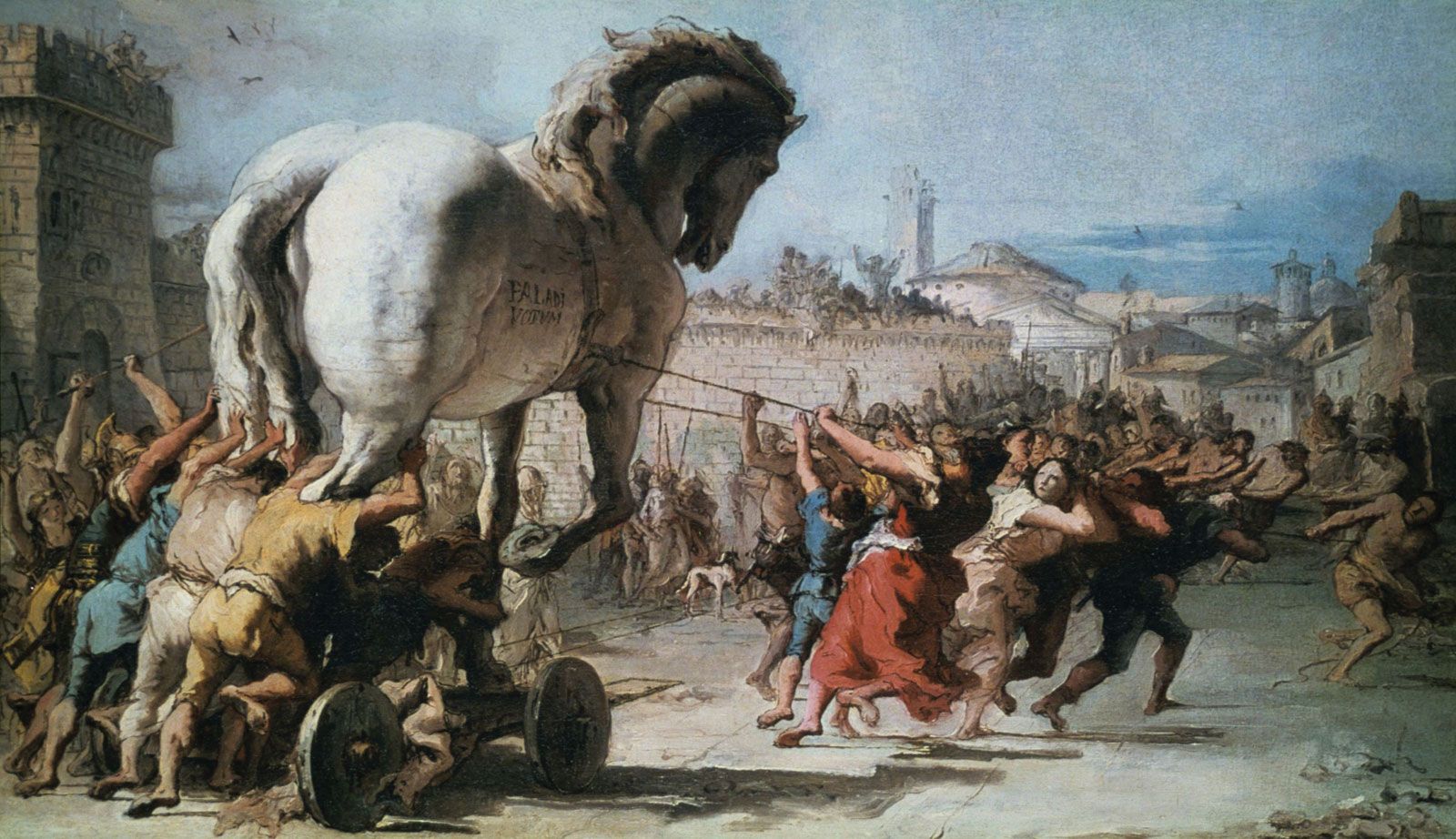
Shield of Achilles
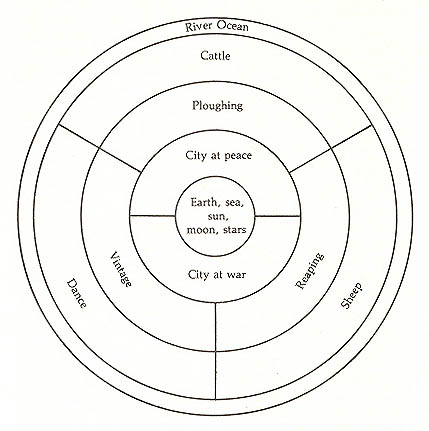
First known interpretation of the world by structures of reason
7th century BC
6th century BC
6th-5th century BC
4th century BC
Homer

Hesiod

Thales of Miletus

- 626/623 – c. 548/545 BC
- greek: Θαλης ὁ Μιλήσιος
- ARCHÉ is water
- rich aristocrat
- first philosopher
Anaximander

Anaximenes

Xenophanes

Pythagoras

Heraclitus of Ephesus

Parmenides

Anaxagoras
